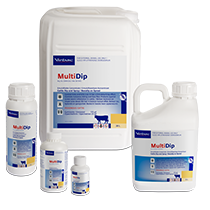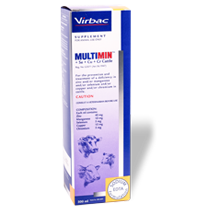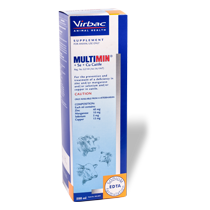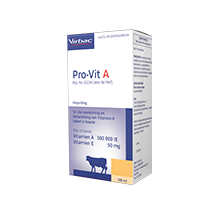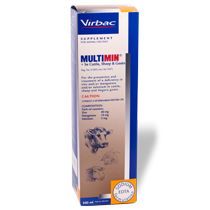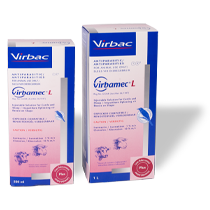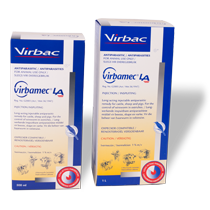
Preparing Bulls for the Breeding Season
Bulls do not always get the necessary attention in preparation for the breeding season. The importance of the genetic contribution to the herd, the costs associated in the buying of quality bulls, and the necessity to optimize reproduction, forces us to attend to the well being and preparation of bulls to be performance ready!
The following areas should get the necessary attention:
1. Body Condition Score (BCS)
The body condition of the bull leading up to and during the breeding season, is just as important as that of the cow. During the breeding season, bulls' grazing time is limited and they spend a lot of energy which drain their reserves. If the bull's condition is not optimal at the start of the breeding season, it will adversely affect his ability to work, as well as their fertility - especially with a 3 month breeding season. (Figure 1)
Figure 1. Bull too lean
It is therefore important to evaluate the condition of the bulls at least 8 - 12 weeks before the start of the breeding season and make adjustments in their nutrition if necessary. A condition score of 3 (out of 5), that builds up to at least 3.5 to a maximum of 4 at the start of the breeding season is desired. (Figure 2)
Figure 2. Optimal condition
Beware of giving bulls too much high-energy concentrate in the run-up to the breeding season. This can lead to the accumulation of fat at the neck of the scrotum, which is detrimental to fertility.
New bulls should preferably not be bought less than 60 days before the start breeding season. Bulls bought at auctions are usually in a very good condition (4+) (Figure 3). These bulls' supplementation must be gradually reduced over a period of at least 4-6 weeks to a BCS of not more than 4. If bulls lose condition too quickly, they can become weak and infertile during the breeding season. If the bulls are joined in an “auction” condition, they will most likely "fall apart" as they go from a concentrate based diet (in preparing them for the auction), to a roughage based diet (veldt / crop residues) on the farm.
Figure 3. Over conditioned
Consult with a nutritionist on the best options for the specific circumstances if bulls’ condition need to be increased or decreased.
2. Breeding soundness
There is much more to “breeding soundness” than just “fertility”. Breeding soundness includes:
2.1 Anatomy - the following must be inspected/evaluated:
- sheath - must not be too long and/or damaged (Figure 4)
- penis - must be able to come out fully and not be broken/crooked
- scrotum - must be symmetrical, not too long (testicles hanging too low) and must not be split at the base (Figure 5)
- testicles - must have a solid consistency, be equal in size and not twisted, be without lumps/injuries and large enough for the age of the bull
- hooves - must not be grown out and/or cracked
- joints - must not be stiff/injured to prevent bull from jumping a cow
Figure 4. Good sheath & scrotum
Figure 5. Scrotum circumference
2.2 Libido - the bull should be “interested” in the cows
2.3 Diseases - bulls should be tested on a regular basis and be free of (venereal) diseases like trichomoniasis and vibriosis. Newly bought bulls should be tested to be BVD PI negative.
2.4 Semen quality and quantity. The evaluation of semen should include the following analysis / measurements:
- Macroscopically - color, density, movement, volume
- Microscopically - semen morphology (head / tail abnormalities), presence of foreign cells (pus cells)
Semen quality must evaluated well in advance of the breeding season to treat or replace bulls!
3. Vaccinations
3.1 Modified ”live” vaccines -
Vaccination of live vaccines should be completed at least 60 days before the start of the breeding season as they can induce a fever reaction that could be detrimental to fertility. Vaccines that should be avoided includes:
- Modified live BRD complex vaccines (BVD, IBR, PI₃, BRSV)
- Rift Valley Fever
- Lumpy-skin
- Three-day Stiff-sickness
3.2 Inactivated (“dead”) vaccines -
Can / should be given closer to the breeding season:
- Vibriosis
- “Pinkeye”
- Clostridial vaccine
4. Trace minerals
Trace minerals plays an important role in bull fertility, especially Zn, Mn,Cu and Se. Sperm takes about 61 days to develop into mature sperm. Supplementation before breeding is critical to reduce oxidative stress and optimize semen quality and quantity.
An injectable trace mineral supplement (Multimin) should be given as a TOP UP over and above normal oral supplementation (licks):
- 12 weeks before the start of the mating season. It supports optimal sperm development as demonstrated by Dr Ferreira (2015). Various semen parameters were significantly improved (P=0.05), whilst other were numerically improved. Don’t forget the synergistic Vit A & E support supplementation.
- Repeat supplementation at the start of breeding season to last the 3 month breeding season.
5. Parasite control
5.1 Internal parasites:
Internal parasites in cattle are generally seen as “less important”. Although not always as “visible” as with sheep, internal parasites could have a negative effect on the condition and performance of bulls.
Liver fluke in particular, can result in huge economic losses. In addition to all the other essential functions of the liver, it also regulates hormone production - which is critical in this pre-breeding period!
5.2 External parasites:
Treat external parasites (ticks) as and when needed to prevent/reduce the transmission of tick borne diseases and mechanical damage of the scrotum and sheath. A tick burden can also effect negatively the appetite of cattle. Fly control will also reduce irritation that negatively impact on growth and condition.
6. General management
The following general management aspects can optimise the effectiveness of bulls during the breeding season:
- Determine the number of bulls needed well in advance!
- Cows: 1 bull per 25-35 cows
- Heifers: 1 bull per 15-20 heifers
- Be prepared to replace bulls that become injured or sick
- Newly bought bulls should be kept in quarantine and observed for at least 2 weeks before introduction to the bull herd or cows.
- Observe new bulls after introduction to the bull herd to prevent excessive fighting and injuries. Keep separate if needed.
- Use experienced bulls on heifers (signs of estrus not always as strong as with cows and last for a shorter time)
- Fitness:
- Train bulls daily - walk at brisk pace
- Start slow/shorter time and increase for up to 30-25 minutes per day - especially those “over conditioned” auction bulls
- Identify bulls with injuries, hoof and joint problems
6009230125DVN

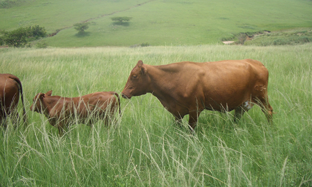
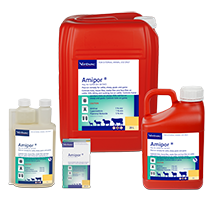
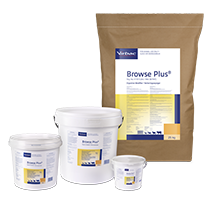
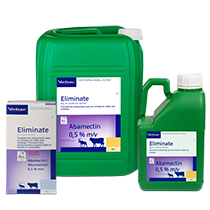
.png)
